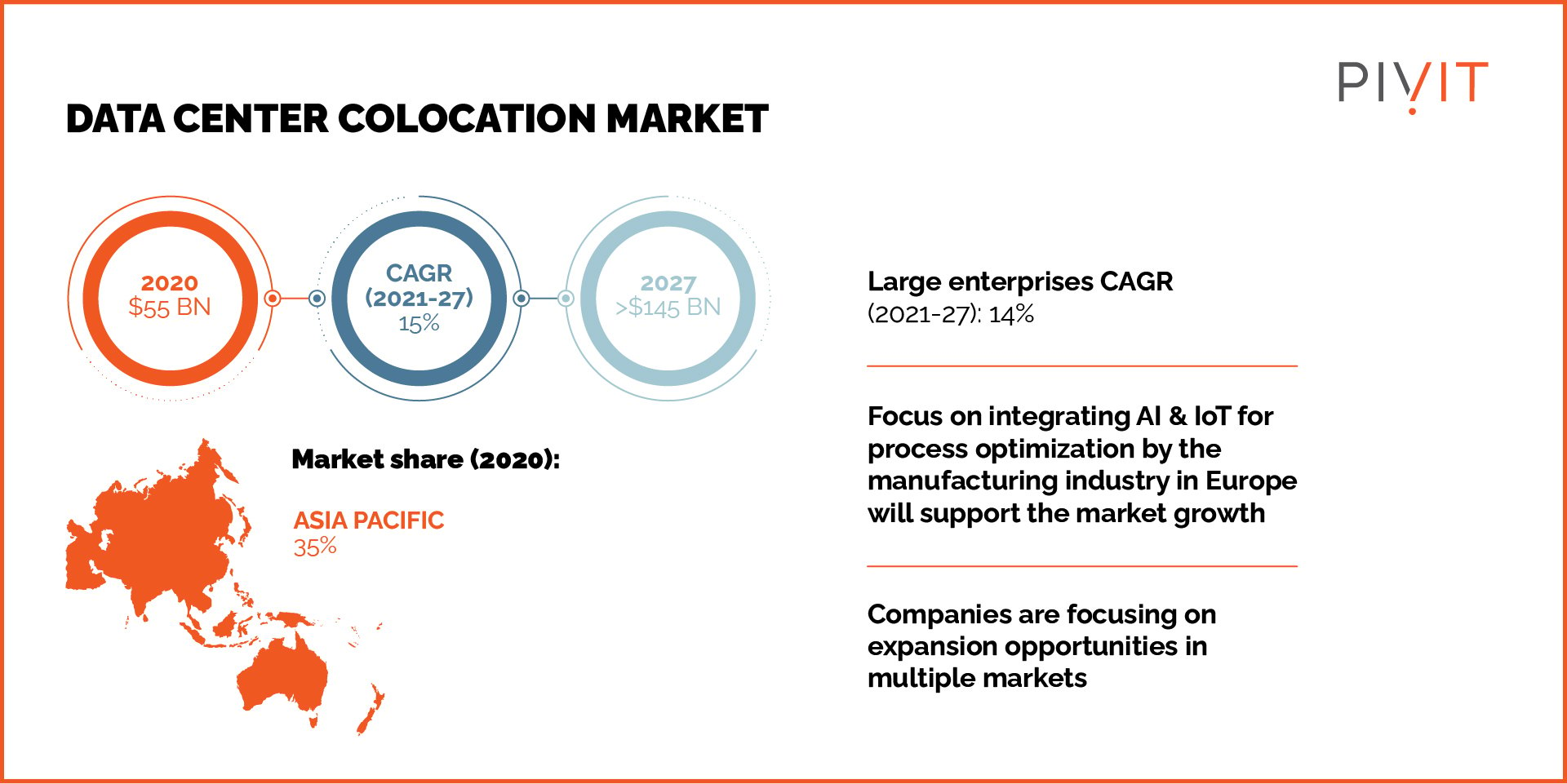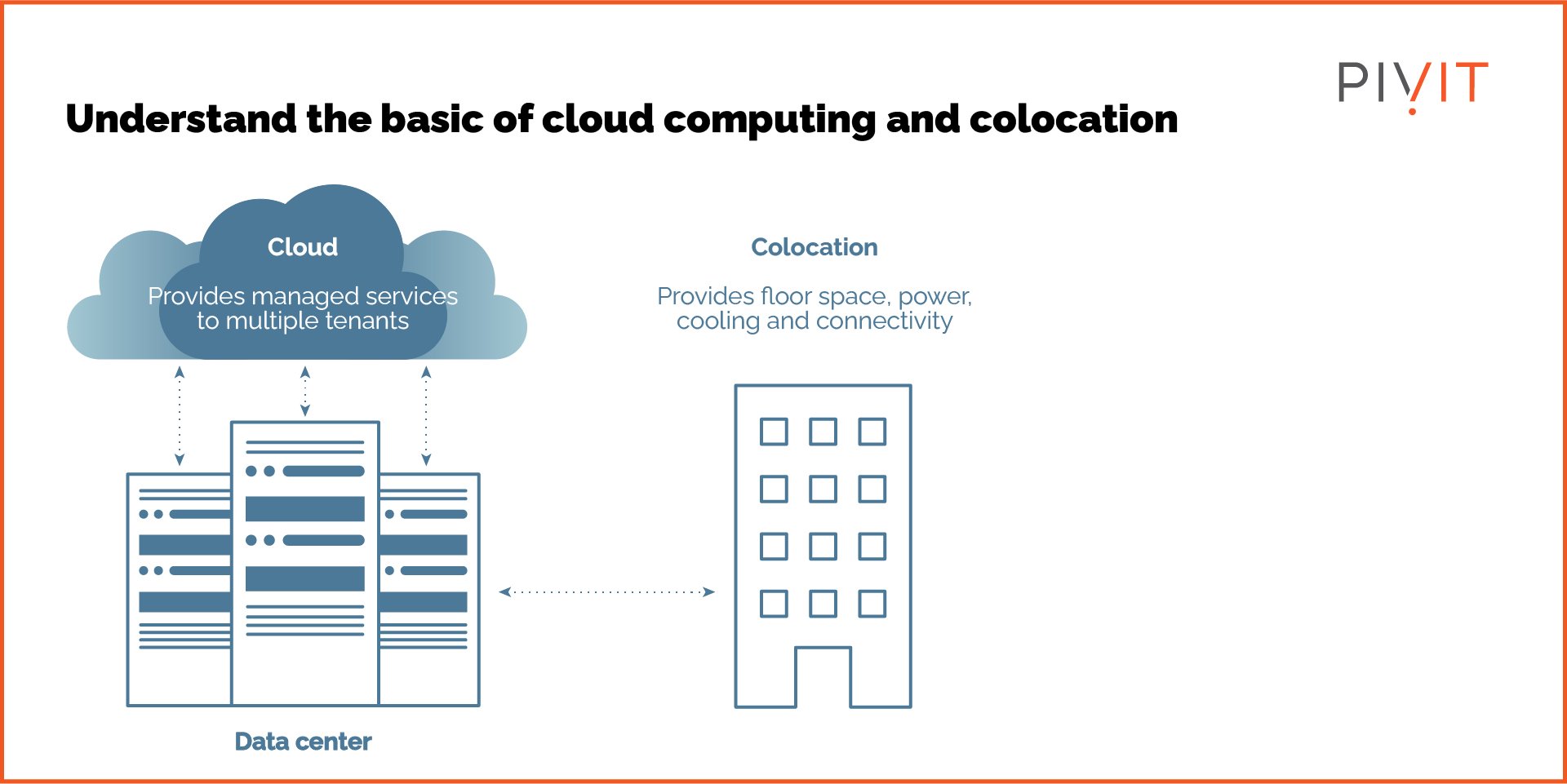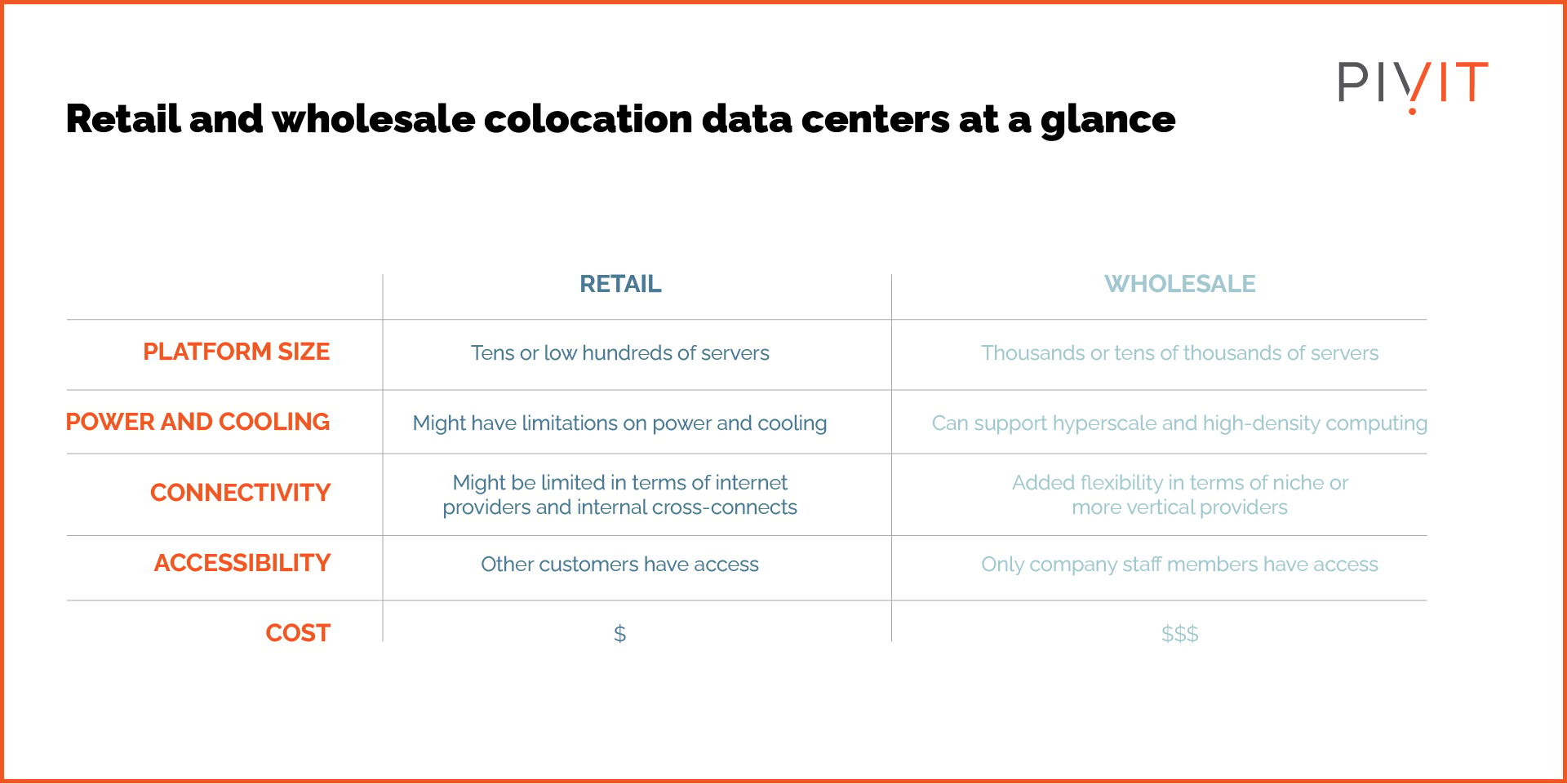Is Colocation the Right Move for Your Data Center?
%20Is%20Colocation%20the%20Right%20Move%20for%20Your%20Data%20Center.png)
There has been a significant shift to service-based business models in the IT industry. The traditional approach to data centers, where companies house infrastructure on-premise, is becoming dated. More enterprises are leaning toward “colocation.”
However, not every emerging trend in the industry may be suitable for all businesses. It’s worth exploring the new options and weighing their pros against cons to make the best choice.
That said, if the colocation data center market size estimates are anything to go by, it’s evident that more and more enterprises are taking this path. It’s expected to grow to an impressive $136 billion by 2028.
In this article, we’ll dive into the following:
- What colocation data centers are.
- How they differ from on-premise and the cloud.
- Whether they are a good option for your business.
Not the article you were looking for today? Try these out:
- Why Chip Supply Shortages Could Bring Redesigns, and What It Means
- What Services to Expect from a Third Party Maintenance Provider?
- How to Find a Balanced IT Maintenance Strategy
What Are Colocation Data Centers?
Colocation data centers (colloquially termed just colocation) are data centers that house privately-owned servers and other equipment of enterprises.
Unlike keeping the infrastructure in-house, businesses that require data centers house the equipment with a location provider.
In many cases, the infrastructure is ‘co-located’ with the servers of other enterprises. The colocation provider usually provides the infrastructure's space, power, security, connectivity, and cooling. However, the equipment is still owned by the enterprise using it.
How does it work? Businesses move their existing data center equipment or purchase new ones and have it shipped to the colocation provider’s premises. They are also responsible for configuring and maintaining it in many cases.
One company can also co-locate its servers in different locations and with various providers.

Data: source
Pros and Cons of Colocation
Colocation data centers offer several benefits, many of which may address the existing challenges businesses may face with their data centers. But for an objective discussion, let’s also talk about the cons of colocation, which may render it a not-so-suitable option for certain data centers.
Pros
- Lower Costs: The main benefit of colocation is cost-saving, as housing infrastructure with a provider may cost companies less than managing it on-premise. Colocation providers typically offer several services in addition to physical space that saves businesses money, at least in the long run.
- Location Advantage: With colocation, enterprises with a global footprint can have data centers in multiple locations without necessarily buying or setting up space. This can be particularly helpful for companies expanding in new regions and testing waters. Similarly, it can benefit companies that may need more space within their premises, or it may be too expensive to house servers on-premise.
- Scalability: Colocation also enables easy scalability, as you can simply rent more space and house more servers to meet the growing demand. That may not be possible on-premise for companies already pressed for physical space.
- Less Technical Expertise Required: Colocation service, if entirely managed, can free your business from having engineers on permanent payroll. As the provider provides support, you don’t necessarily need technical experts.
- Reliability and Security: Colocation providers ensure high server availability and uptime while implementing tough security and compliance protocols. Although the performance may still hinge on your infrastructure, you can rest assured that factors like power issues or low bandwidth don’t interrupt your services.
- Ownership: Unlike the cloud, you own the servers and other equipment. This also allows more freedom as you can choose the vendors and upgrade equipment according to your budget, schedule, and needs.
Cons
- High Upfront Investment: While colocation may save you money on space and support in the long run, it requires a high initial investment as you move your infrastructure to another location. The logistics costs can be pretty high depending on your data center needs.
- Lack of Control: Even though you have full ownership of the equipment, you don’t directly control it as it’s not physically present on-premise. This lack of direct control and management risks critical data and operations.
Important Distinctions to Understand
Colocation for data centers has similarities with other arrangements, such as on-premise and cloud. It’s essential to understand the differences.
On-Premise vs. Colocation
With on-premise servers and storage, you’re responsible for everything, from power provision to maintenance to decommissioning old equipment. Also, you have complete control over the equipment, which allows for greater autonomy and, perhaps, security.
Colocation differs from on-premise infrastructure in its location and management. In colocation data centers, you retain the ownership of the IT assets. However, another company provides space and other resources for running the servers.
Running servers on-premise may be more costly than colocation, as you need space and technical expertise around the clock.
Cloud vs. Colocation
Colocation shouldn’t be confused with the cloud. While in both scenarios, servers and other equipment is housed off-premise, in the case of the cloud, the company does not own or control the assets.

These similar yet distinct data center deployment models offer more flexibility, scalability, and cost savings than the on-premise model. With colocation, the enterprise owns all the infrastructure, which provides greater control. An enterprise may only access virtual assets in the cloud, not the underlying hardware.
Cloud services like infrastructure as a service (IaaS) may be more suitable for smaller data centers of enterprises.
Colocation Data Center vs. Server Rack
In the colocation data center deployment model, enterprises can buy or share entire data center spaces with other entities. The latter is typically referred to as a colocation server rack.

With a colocation rack, you rent out space on a rack to house your servers. It’s the same as colocation, except resources like power and bandwidth are shared.
Many colocation providers are providing colocation server racks instead of entire data centers. However, you may have to pay more if you want a dedicated server location.
Things to Consider When Choosing Colocation
While there is a lot of value to choosing colocation for a data center, the decision should come down to your unique business needs. For enterprises whose data center needs are straightforward, having a colocation data center can be quite cost-effective.
On the other hand, having servers on-premise can provide the control and access you need for data centers with more complex architectures and critical data requirements. On-premise data centers may also be suitable for time-sensitive operations.
You can also consider a hybrid approach, taking advantage of colocation while maintaining some infrastructure on-premise.
Similarly, you can also leverage the cloud for part of the operations. Although that may increase complexity, your data center can be hybrid with the right integrations while offering reliable performance, foolproof security, and cost savings.
Make PivIT Your Procurement & Logistics Partner!
Whether you have an on-premise data center or are considering going with a colocation provider, PivIT can help in every scenario. Find the latest gear with short lead times and from major OEMs in PivIT’s standing inventory worth millions.
Even if the equipment isn’t available outright, the procurement specialist at PivIT can do the hard work on your behalf and find the necessary equipment.
Similarly, PivIT’s professional EXTEND services can be your logistics go-to if you decide to leverage colocation for your data center. With a global network, PivIT can safely transport your equipment wherever needed.
PivIT can help make your data center colocation journey smooth!

